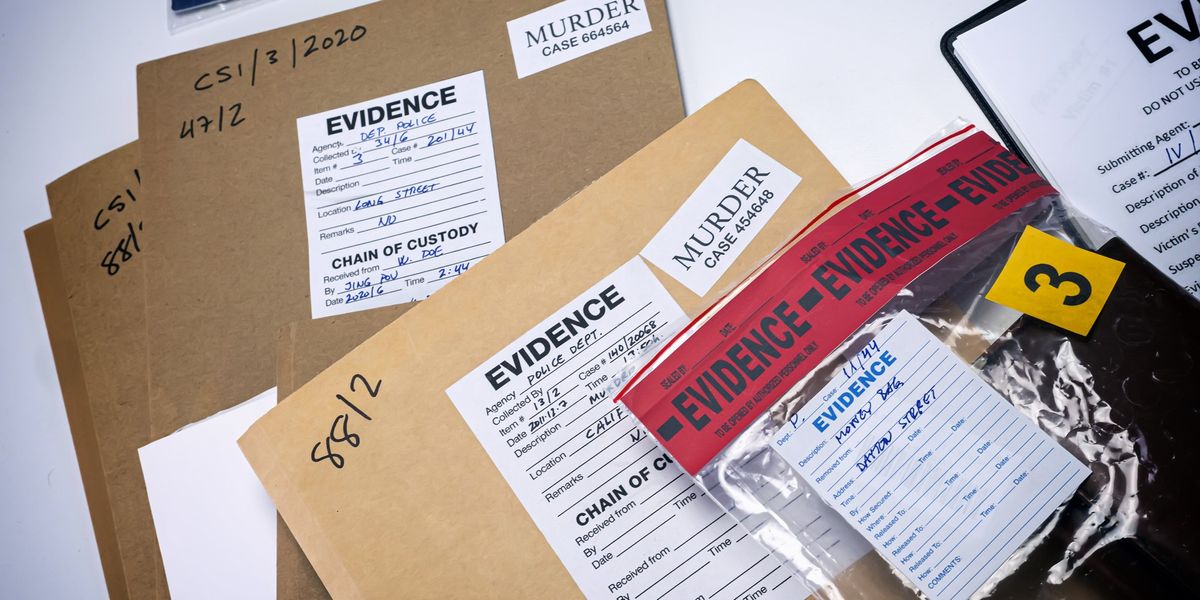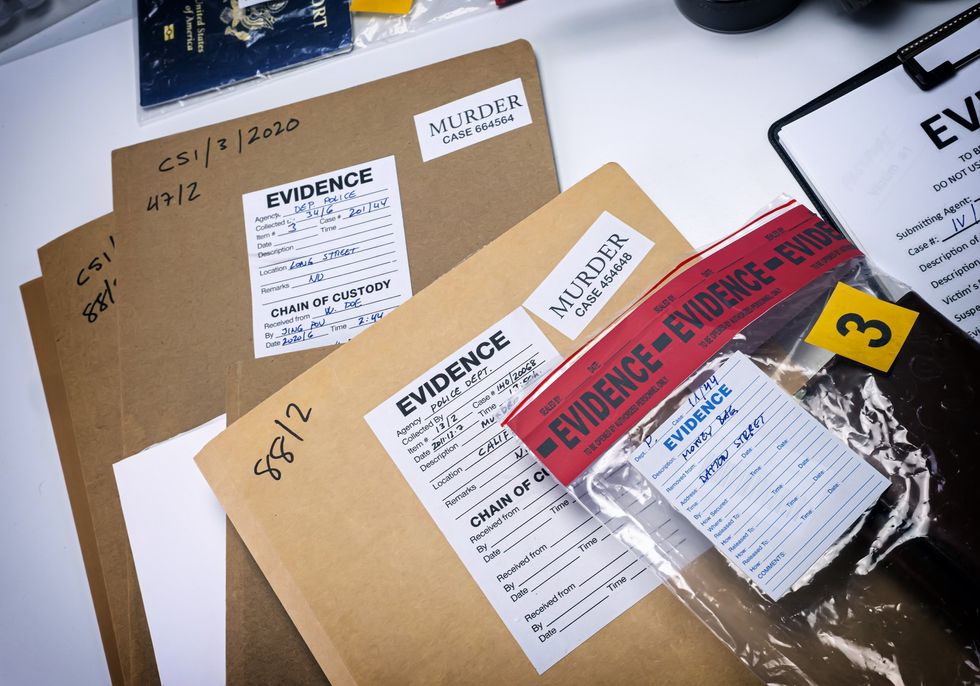



A rape charity CEO warns that rape victims "not coming forward because they have lost faith in the system" after new data shows thousands of criminal cases are collapsing every year due to lost or damaged evidence.
More than 30,000 prosecutions in England and Wales - including 550 sexual assault and 70 homicidal cases - fell through between October 2020 and September 2024, data from the Crown Prosecution Service (CPS) show.
Neil Henderson CEO of Safeline, a specialist charity that works to prevent sexual abuse, said the latest report is "just another example" of how victims are "being let down."
He told GB News: "It’s another kick in the teeth for victims, who are being let down left, right and centre.

A rape charity CEO warns that rape victims 'not coming forward because they have lost faith in the system' after new data shows thousands of criminal cases are collapsing every year due to lost or damaged evidence (stock image)
Getty
"Losing evidence is just another example of being let down. The victims are already finding it really hard to get the justice they deserve."
Henderson also issued a worrying warning about how this data will impact victims of sexual assault.
"It’s one more bad example of victims of being let down by the whole system, and we are seeing a big decrease of victims not coming forward because they have lost faith in the system," he said.
Police chiefs claim that not all cases are related to lost evidence - as some could be down to officers not being able to get an expert witness or medical statement.
CEO of Rape Crisis, Ciara Bergman, echoed the thoughts of Henderson and called the data a "devastating blow."
She told GB News: "Every instance of a sexual offence case being dropped due to lost or damaged evidence represents not only a failure of our system to adequately respond to rape, but a devastating blow to the survivor who came forward in the hope of justice and accountability.
"These figures are deeply concerning. Survivors of sexual violence already face huge barriers to reporting what happened to them, and many describe the criminal justice process itself as re-traumatising.
"For their cases to be dropped because of damaged or missing evidence only compounds that trauma, and undermines our justice system in its entirety.
"It is crucial that police forces and the Crown Prosecution Service work together to understand how and why such sensitive and important evidence is being lost or damaged, and take urgent steps to prevent this from happening. Everyone – not least survivors - must have confidence that every single case of sexual violence and abuse will be treated with the seriousness and care it deserves."
A leading criminologist suggested a surge in the loss of data is due to "a resourcing issue" following cuts to the police force throughout the 2010’s.
When police build a case, they hand a file to the CPS. However, if the CPS cannot take it to trial due to a lack of essential evidence to secure a conviction, they record their data as an “E72”.
In 2020, 7,474 prosecutions fell through because of lost, missing or damaged evidence, according to freedom of information request submitted by the BBC and the University of Leicester,
In 2024, that rose by nine per cent to 8,180.
The type of evidence that was lost included; physical and forensic evidence being lost, damaged or contaminated during storage, digital evidence - including body camera and victim interview footage being lost - witness statements not being made available by the police and key evidence not being collected from crime scenes.

A leading criminologist suggested a surge in the loss of data is due to "a resourcing issue" following cuts to the police force throughout the 2010’s
Getty
The data does not break down why cases have collapsed, but suggests the number of cases recorded as an E72 are increasing, with a higher proportion of prosecution failing due to lost or missing evidence.
A Home Office spokesperson said: "We always expect forces to adhere to the National Police Chiefs' Council's (NPCC) guidance on storage and retention of evidence."
However, the data does suggest the number of cases recorded as an E72 are increasing, with a higher proportion of prosecutions failing to result in a conviction because of lost or missing evidence.
